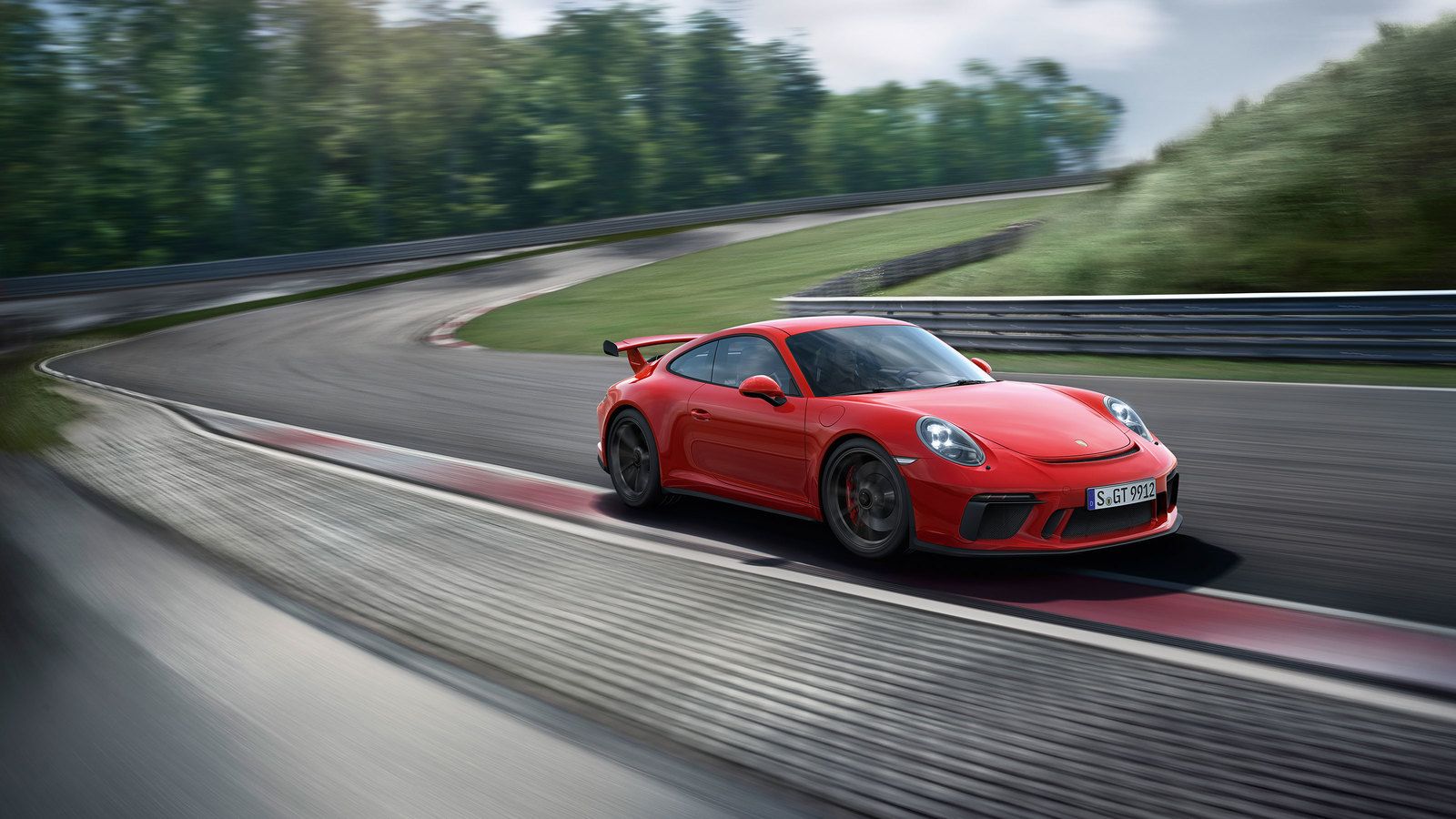When it comes to the sports car segment, natural aspiration (that is, no supercharger or turbocharger) makes for loads of good stuff, including a robust torque curve and a high redline, not to mention one helluva sound. And while most manufacturers are ceding to the demands of ever-higher efficiency by adding boost to the mix, it’s rumored Porsche could cling to its all-atmosphere powerplants for at least a little while longer.
Continue reading for the full story.
The Full Story
All-atmosphere engines are few and far between these days, what with ever-stricter restrictions on emissions and fuel efficiency. However, the few that remain tend to be absolute monsters (assuming you’re looking in the performance segment, that is).
The 4.0-liter flat-six in the current 991.2-era Porsche 911 GT3 is a good example. With DOHC, 24-valves, aluminum construction, and no forced induction, this thing is modern engine building at its finest, doling out huge power and torque at the rear wheels. What’s more, it’ll spin up to an ear-bleeding 9,000 rpm. The GT3 is a howler, to be sure, and without any boost-adders, it’s a bit of an oddity as well.
But, as they say, nothing gold can stay, and rumor has it the next GT3 will add a pair of turbos to the formula. As such, the purists aren’t happy, preparing a spot for natural aspiration on their list of “Things We Used To Love About The 911 “ (right below air cooling and manual steering).
Luckily, the purists may need to delay their rioting at a little longer, as our friends from the Australian website Which Car are reporting that the 911 could continue its atmospheric motivation for at least a little longer into the future.
Which Car spoke with Porsche’s Project Manager for GT Road Car Engines, Thomas Mader, who sparked a bit of hope that Stuttgart was looking to hold onto its un-boosted powerplant.
When asked if the GT3 would be the last high-performance naturally aspirated engine from the brand, Mader responded, “I don’t think so. We’re working on that with our team, we’re looking at power, driveability, we’re looking towards the future… Developing is going on, so we will see.”
Mader also mentioned the possibility of stroking the 4.0-liter engine, increasing capacity and offering even more output. What’s more, the powerplant on the road-going GT3 might also see tweaks to raise redline to an astonishing 9,500 rpm, matching that of the 991.2 RSR.
“This is also a point for development. We will look at the things we have on racetrack to put it in the streetcar, that’s our job,” Mader said. “The point is, this makes sense, because you want to have power, driveability.”
Mader went on to point out that a 9,500-rpm engine would need support from the rest of the drivetrain and vehicle set-up to match, including the gearbox. After all, even though Porsche has all these bits developed for the racetrack, the demands of a streetcar are much different.
Mader went on to say that atmospheric engine technology still had some life left in it in terms of efficiency increases. When asked how Porsche’s engineers might extract a bit more bang for the buck, Mader said, “I would work on precise internal combustion. It must be very precise with timing, the amount of fuel you put in the engine, then you have very low emissions engine. Then you have the exhaust cleaning systems,” he explained.
As a reminder, the current GT3 produces 500 horsepower at 8,250 rpm and 339 pound-feet of torque at 6,000 rpm, all of which is sent to the rear wheels via either a six-speed manual or a seven-speed dual-clutch automatic.
For anyone who’s a fan of the GT3’s wailing scream, this is undoubtedly some good news. It’s also worth mentioning that hybrid systems could come to play as Porsche extracts every mpg possible from its all-atmospheric engine package, which begs the question - which would you prefer, a turbo or a hybrid? Let us know in the comments section below.
Which Car0}
Read our full review on the 2018 Porsche 911 GT3.
Read more Porsche news.

